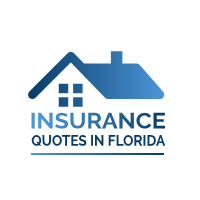How to get cheap homeowners Insurance in Florida?
Another way to save money on insurance is to fortify your home against wind damage. Making additions and renovations to your home can make it more resistant to hurricane damage.
For example, you might seal the roof deck to keep storm water out. Or, you might install shatterproof glass. Such improvements can significantly reduce the price you pay for windstorm coverage. In fact, such discounts cut your insurance premium by up to 88 percent, according to the Florida Division of Emergency Management.
Why do I need flood insurance in Florida?
If you have Florida home insurance, don't assume you are covered in the event of a flood. A homeowners policy in Florida does not cover flood damage -- the most common natural disaster in the U.S., according to III.
In the U.S., the federal government offers flood insurance to florida homeowners through the National Flood Insurance Program (NFIP). Fail to buy this type of policy, and you will be out of luck if flood waters roll through your home.
We looked at the top five providers and compared their lists of policy options and discounts, and even called customer service to see what type of experience a client might get.
Finding affordable homeowner’s insurance in Florida is no easy task: With an average annual premium of $2,084 (nearly double the the national average of $1,034), Florida has the highest home insurance rates of any state in the United States. This shouldn’t come as too much of a surprise considering Florida’s coastal geography and the increased likelihood of property damage due to hurricanes and floods.
Despite all this, there are still factors that can reduce what you’ll pay for home insurance in Florida — the physical location of the property, the age and condition of the home, and, of course, the insurance provider you choose will all have a significant impact on your monthly payment.
Does Your Current Insurance Policy Cover Your Dog?
If you’ve been insured with the same insurance company for years, don’t assume your policy includes coverage for your dog(s). Insurance companies regularly modify what their policy will cover (and what it won’t cover). Your company may not know you have a “dangerous” dog. If they find out, your policy may immediately cancel or be non-renewed.
Looking for cheap homeowners Insurance in Florida?
Florida has some of the highest homeowners insurance insurance rates in the country, and for good reason. Of the ten most devastating hurricanes in the United States, seven hit Florida — and six occurred in 2004 and 2005. The state is still dealing with the aftermath of 2017’s Hurricane Irma, which caused so much damage that one insurer recruited and trained real estate agents to help them handle the flood of insurance claims.
The most important thing you can do for your house is to make sure that you’re armed with the best home insurance in Florida possible.
There are a lot of factors that go into homeowners insurance rates, and you’re going to want to shop around to determine which provider can offer the best homeowners insurance quote — but if you want to own a home in Florida, you need to be prepared to pay high premiums. The National Association of Insurance Commissioners reports that Florida homeowners with a H03 policy pay an average of $1,993 per year, compared to the national average of $1,173.
Looking For Cheap Renters Insurance?
From Miami to Orlando, Tampa to Fort Lauderdale, Florida abounds with bustling cities that are perfect for renters. Of course, there's one roommate you should always move in with: renters insurance.
Having renters insurance in Florida can help protect your belongings from damage and theft, pay medical bills if guests are injured in your place, and cover liability expenses if you're caught in a lawsuit. And in the unthinkable case that your abode is damaged by, say, a fire or tornado, renters coverage can even help put you up elsewhere while repairs are made.
So, how do you get the cheapest home insurance in Florida?
Maintain a security system and alarms: A burglar alarm monitored by a central station or tied directly to a local police station will help lower the homeowner's annual premiums, perhaps by 5% or more. In order to obtain the discount, the florida homeowner must typically provide proof of central monitoring in the form of a bill or a contract to the insurance company.
Smoke alarms are another biggie. While standard in most modern houses, installing them in older homes can save the homeowner 10% or more in annual premiums. CO2 detectors, dead-bolt locks, sprinkler systems and in some cases even weatherproofing can also help.
Raise your deductible: Like health insurance or car insurance, the higher the deductible the homeowner chooses, the lower the annual premiums. However, the problem with selecting a high deductible is smaller claims/problems such as broken windows or damaged sheetrock from a leaky pipe, which typically will cost only a few hundred dollars to fix, will most likely be absorbed by the homeowner.
